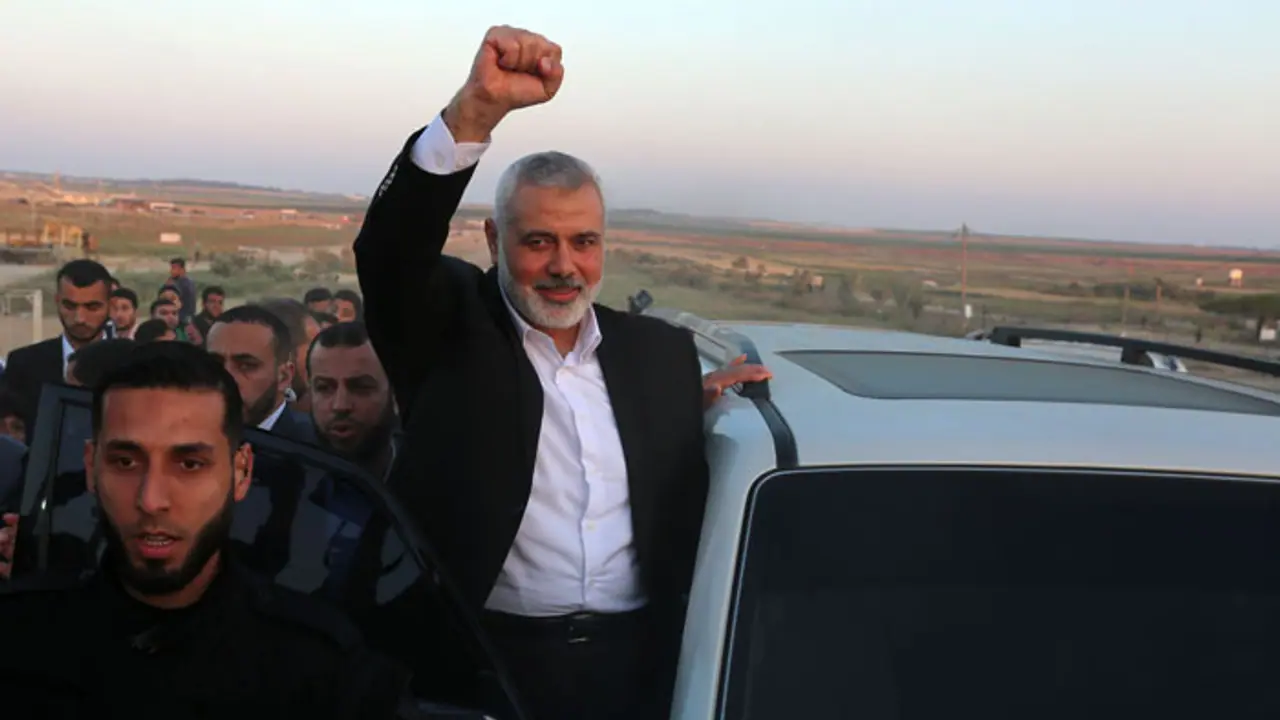Days after the assassination of Ismail Haniyeh in Tehran, a report has claimed that Israel informed the United States that it was responsible for the killing of the Hamas political chief, leading to heightened tensions between the two allies.
Days after the assassination of Ismail Haniyeh in Tehran, a report has claimed that Israel informed the United States that it was responsible for the killing of the Hamas political chief, leading to heightened tensions between the two allies. According to a report in the Washington Post, Biden administration officials expressed strong discontent over the decision to take Haniyeh out, concerned that the killing could jeopardize months of delicate negotiations aimed at establishing a truce in Gaza.

The White House's frustration was compounded by Israel's pattern of not notifying the US prior to launching operations against other high-profile targets, including Hezbollah and Iranian commanders, according to the report.
An anonymous Israeli official confirmed to the Washington Post that a recent phone call between Israeli Prime Minister Benjamin Netanyahu and US President Joe Biden was marked by tension, reflecting the strained relations over these actions.
Haniyeh was assassinated in a bombing last week in Iran's capital, leading to speculations of a larger regional war. The assassination came during the inauguration of Iran’s new president Masoud Pezeshkian. Following the killing, Iran vowed to retaliate against Israel for the alleged attack on its soil.
Yahya Sinwar named Hamas' new leader
Meanwhile, Hamas has named Yahya Sinwar as its new head of the political bureau. Sinwar, a key figure behind the October 7 attack on Israel, is now the top decision-maker for the group. His appointment, which follows the assassination of his predecessor and Iran’s retaliation threats, is seen as solidifying the group’s hardline stance. Sinwar, known for his past imprisonment and violent commitment, is expected to impact ongoing ceasefire negotiations significantly.
Ismail Haniyeh played a crucial role in negotiations between Israel and Hamas for a ceasefire, serving as an intermediary between Israel and Yahya Sinwar. While Haniyeh had limited direct control over militants in Gaza, he was considered a relative moderate and led Hamas’s delegations in talks mediated by Egypt, Qatar, and the US, focusing on ceasefire and prisoner release deals.
In contrast, Yahya Sinwar, a founding member of Hamas, is regarded as the group's most powerful figure. A former head of Hamas's intelligence service, Sinwar spent 23 years in Israeli prisons for attempted murder and sabotage, earning a reputation as intensely committed and violent.
Yahya Sinwar was released in a 2011 prisoner swap where Israel exchanged 1,000 prisoners for Gilad Shalit, an Israeli soldier captured by Hamas five years earlier. Upon his release, Sinwar quickly resumed militant activities, believing that capturing Israeli soldiers was crucial for securing the release of Palestinian prisoners.
Sinwar’s appointment as head of Hamas's political wing is expected to strengthen his control over the group and raise concerns about the prospects for a ceasefire. He is believed to have orchestrated the October 7 attack from Gaza without notifying Hamas's political leadership, which was led by Haniyeh in Qatar.
Israel has asserted that it killed Hamas's military commander, Mohammed Deif, in a July strike, part of a broader campaign targeting key Hamas leaders. Another prominent figure, Saleh al-Arouri, was killed in January.
Israeli military spokesperson Rear Admiral Daniel Hagari has stated that Sinwar's place is alongside other attackers from the October 7th incident, indicating continued military efforts against him. “There is only one place for Yahya Sinwar, and it is beside Mohammed Deif and the rest of the October 7th terrorists. That is the only place we’re preparing and intending for him," he said.
Hamas spokesperson Osama Hamdan has suggested that Sinwar’s leadership will not hinder negotiations, blaming the US and Israel for the current impasse.
